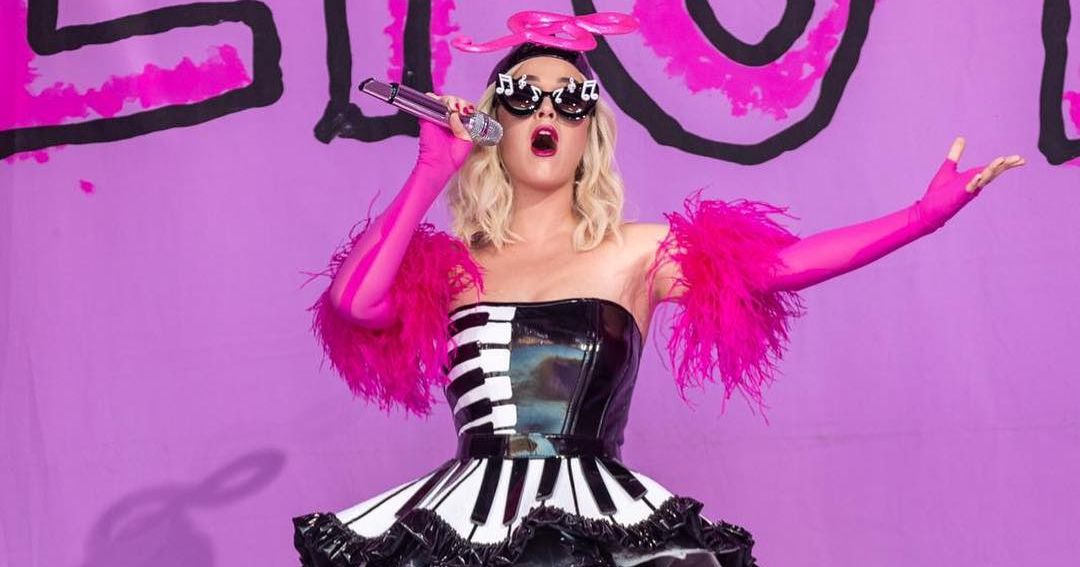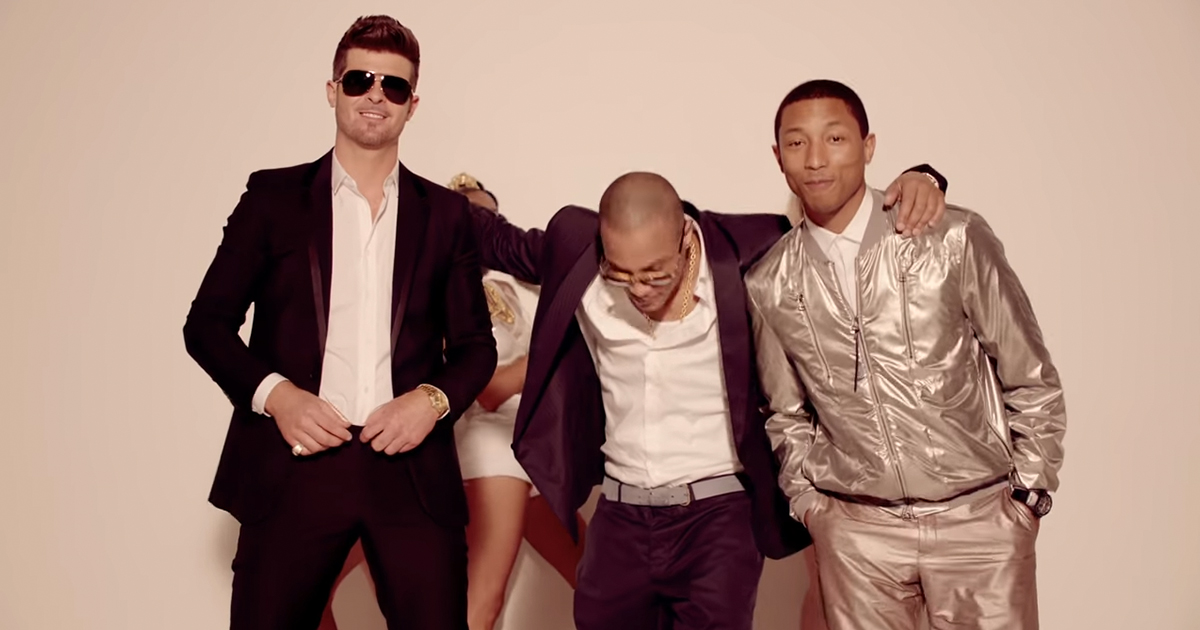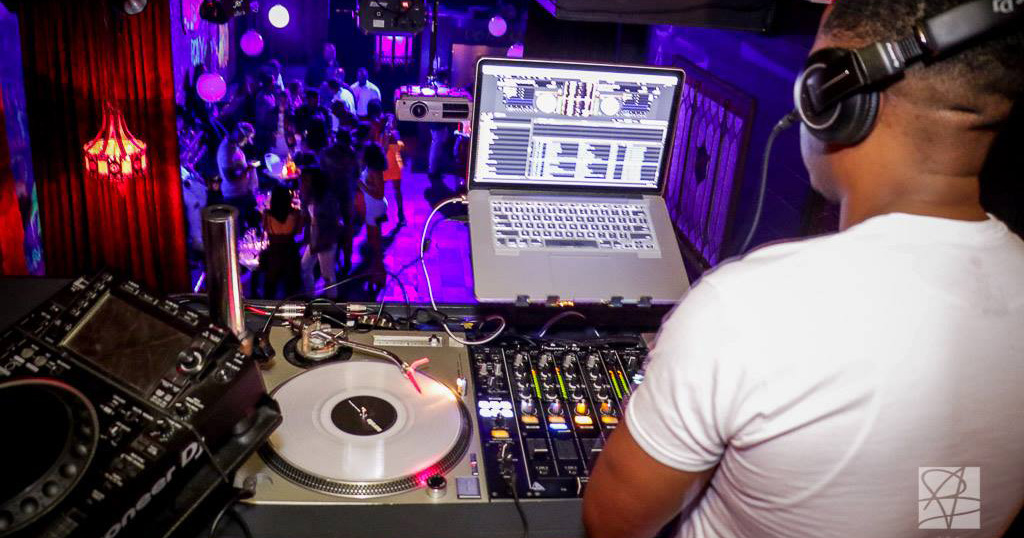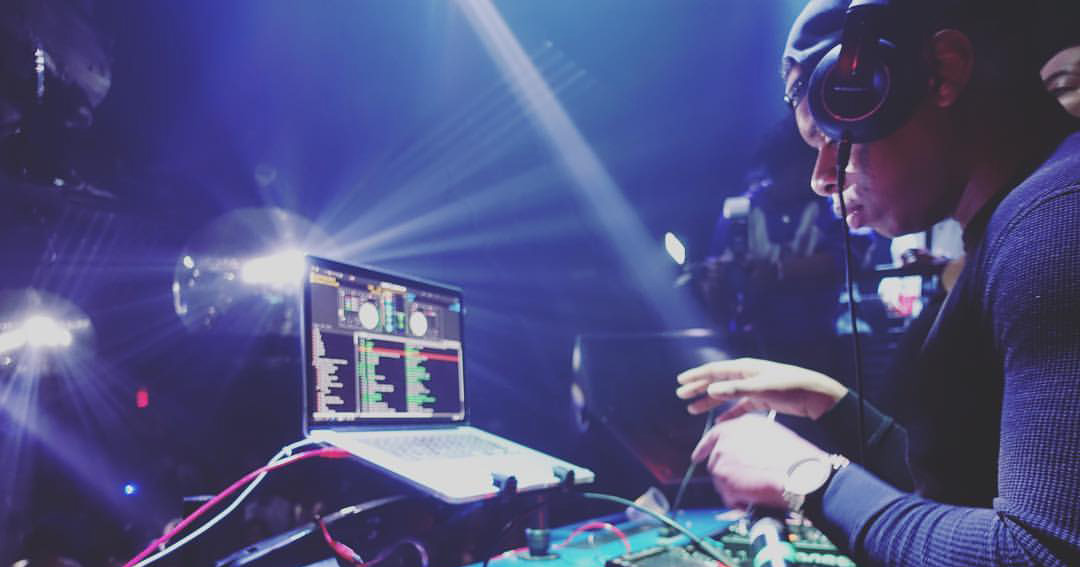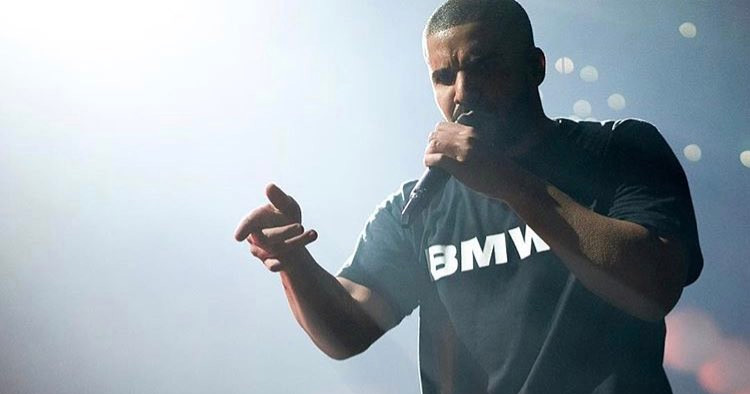Legal
Katy Perry Loses ‘Dark Horse’ Copyright Lawsuit
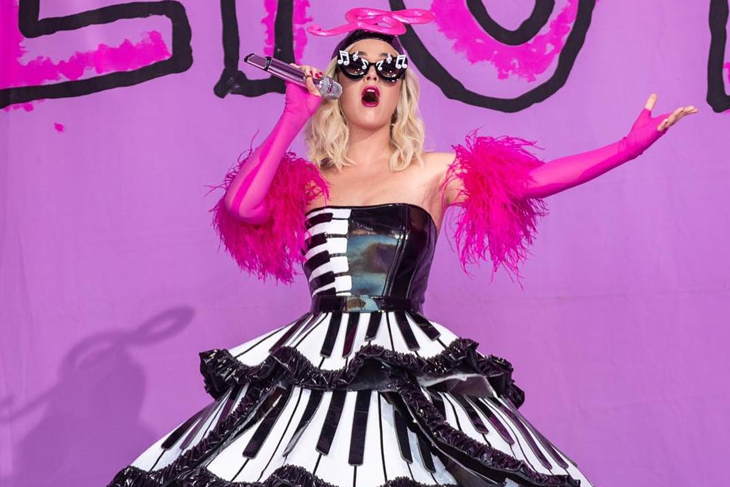
Katy Perry performs at the 2019 New Orleans Jazz & Heritage Festival. (Credit: Douglas Mason)
After a week-long trial, a California jury has decided that Katy Perry‘s 2013 hit “Dark Horse” unlawfully borrowed elements from another song.
Christian rapper Flame, a.k.a. Marcus Gray, claimed that the hit song copied the beat of his 2008 track “Joyful Noise.” Perry and Dr. Luke, who co-produced “Dark Horse,” both insisted that they had no prior knowledge of Flame’s song.
The jury has yet to decide on how much Perry and her collaborators, who also include featured artist Juicy J and co-producer Max Martin, owe Flame in damages.
Related Post: Robin Thicke and Pharrell Lose ‘Blurred Lines’ Lawsuit
Robin Thicke and Pharrell Lose ‘Blurred Lines’ Lawsuit
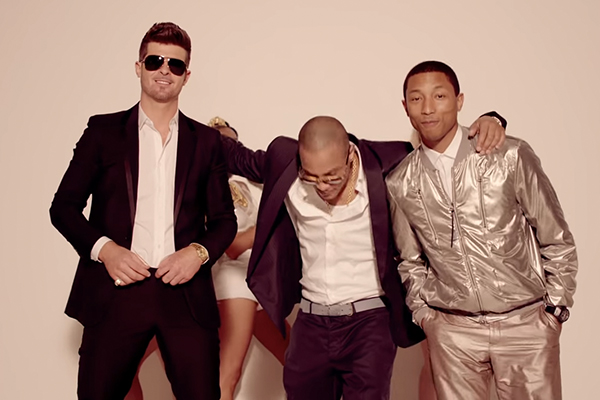
A California judge has ordered Robin Thicke and Pharrell Williams to pay nearly $5 million in damages over similarities between “Blurred Lines” and Marvin Gaye‘s “Got To Give It Up.”
In addition, Gaye’s estate will also receive 50 percent of future songwriting and publishing royalties from the 2013 hit.
The ruling ends a landmark five-year legal battle in which Gaye’s family alleged that the artists were guilty of copyright infringement. The pair filed for an appeal in 2015 after a jury ordered them to pay $7.4 million in damages, later reduced to $5.3 million.
Related: Watch N.O.R.E.’s ‘Uno Más’ Video Feat. Pharrell Williams
New York City Council Repeals ‘No Dancing Law’
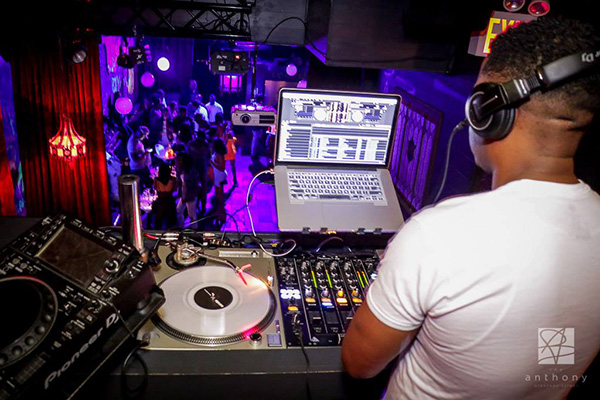
DJ First Choice at The Anthony in New York City. (Photo source: Facebook)
New York City Council members voted Tuesday to repeal the city’s controversial Cabaret Law. The bill still has to be signed by Mayor Bill de Blasio, but he has already expressed support for it, according to the New York Times.
Established in 1926, the “no dancing law” prohibits dancing in public venues that don’t have a license. As DJcity previously reported, fewer than 100 of the city’s 25,000 eligible establishments have one due to how difficult it is to get.
Critics of the law, like Thump, for example, have argued that it has a racist legacy. Councilman Rafael L. Espinal, Jr., who introduced the proposal in June, called the law “historically racist.” He said it also was being used to target small business owners.
After the vote, Espinal spoke to a crowd of supporters at City Hall, according to the Times.
“If you’re Latino, if you’re black, if you’re from the LGBTQ community, you all have been impacted by this law,” he said. “It is time we right this historical wrong and remove New York’s inappropriate and arbitrarily enforced dancing licensing.”
In September, Mayor de Blasio signed another one of Espinal’s bills into action. It will establish an “Office of Nightlife” and “Nightlife Mayor.” Its purpose will be to promote “a safe and vibrant nightlife scene” for businesses and residents.
The passing of both bills could transform New York City’s nightlife scene. More venues would be able to host dance parties without fear of getting shut down, which could lead to more gig opportunities for DJs.
Related: New York City Council Member Introduces Bill to Repeal ‘No Dancing Law’
New York City Council Member Introduces Bill to Repeal ‘No Dancing Law’
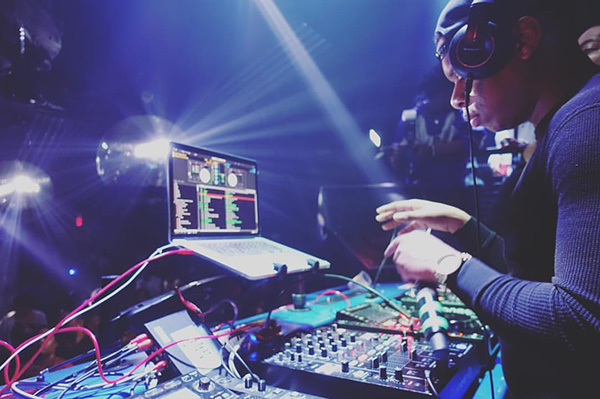
DJ First Choice (Photo source: Facebook)
A New York City Council member introduced a bill on Wednesday that would repeal the city’s controversial Cabaret Law. The 91-year-old ordinance, which is often referred to as the “no dancing law,” prohibits people from dancing in public venues that don’t have a license.
Under the rule, establishments that want to have dancing must apply for the permit. However, the process is said to be difficult, and only .01% of the city’s bars and restaurants have one, according to the Dance Liberation Network.
According to a 1987 article in the New York Times, the law is “largely concerned with occupancy limits, fire safety, and the moral character of cabaret owners.”
However, East New York Councilman Rafael L. Espinal, Jr., who introduced the repeal bill, argued at a hearing on Monday that the law is “historically racist.”
“Espinal said business owners have complained that the law is used as a way into their establishments to issue other violations,” according to CBS New York.
Bronx Councilman Richie Torres agreed: “We have no business criminalizing dancing, and the puritanism of the cabaret law has no place in New York City. It’s a law that’s racist in its origins.”
In March, Thump wrote an article that claims the law was intended to target black jazz establishments.
At the hearing, hundreds of supporters joined Espinal to voice their concerns. The councilman said their stories inspired him to write the bill.
Small business owner Rachel Nelson said: “The Cabaret Law is a law that is arbitrarily enforced on minority populations and small businesses in order to shut them down as a neighborhood gentrifies.”
However, supporters of the Cabaret Law say it’s an issue of public safety.
“The city will argue that the law is not currently being enforced to regulate dancing and only to ensure the safety requirements,” Councilman Espinal said. “But the stories on the ground will tell you different.”
In addition to repealing the law, Espinal has also proposed legislation to create a Nightlife Task Force and Office of Nightlife, which would be led by a “night mayor.” Its responsibilities would include regulating the nightlife industry and helping create a safer environment.
Both bills have a long way to go, though.
The next step is for the Consumer Affairs Committee to consider amendments to the proposals and vote on them. If they pass the Committee, they will be considered and voted on by the City Council. If the bills pass the Council, they will then be presented to Mayor Bill De Blasio, who will have 30 days to sign, veto, or ignore them.
If the repeal law is signed, more venues in New York City might encourage dancing. As a result, the demand for DJs in the city might increase.
Related: California Senate Approves Bill to Extend Alcohol Service to 4 a.m.
California Senate Approves Bill to Extend Alcohol Service to 4 a.m.
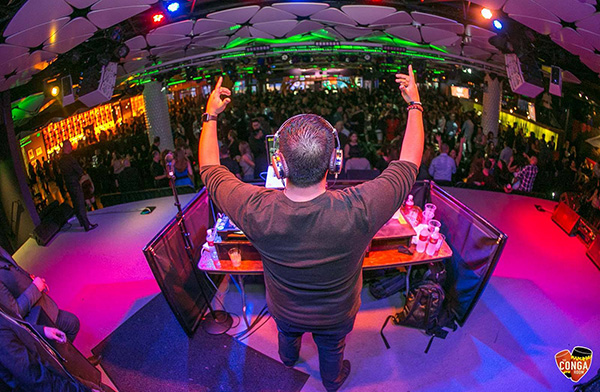
DJ Santarosa performs at the Conga Room in Los Angeles. (Photo source: Facebook)
The California Senate approved a bill on Wednesday that would allow bars and restaurants to extend alcohol service to 4 a.m. The vote marked the first time a bill to extend alcohol service hours advanced past the state’s Senate.
The bill, which is called the Let Our Communities Adjust Late Night Act, will now move to the State Assembly for a vote before going to Governor Jerry Brown for final approval.
If approved, the LOCAL Act would let bars and restaurants sell alcohol past the current 2 a.m. cutoff time. However, local governments would be allowed to decide if they wish to extend the service hours. Establishments would also have to obtain permits from the Department of Alcoholic Beverage Control.
Senator Scott Wiener, D-San Francisco, who proposed the bill, spoke on Wednesday about the benefits of letting local governments decide for themselves.
“The LOCAL Act recognizes that nightlife is critical to the culture and economy of many cities throughout our large and diverse state, and that local communities can make responsible decisions to support nightlife, if that’s the choice they want to make. By taking this nuanced approach to empower – but not require — local communities to extend alcohol sales hours, we can support nightlife in California while also recognizing that there is not a one-sized fits all solution for each and every city in our great state.”
The bill still has some challenges ahead, however, as it faces strict opposition from groups who helped defeat a similar proposal in 2013. Their concerns include risks to public safety.
On the other hand, support for the bill has surged since 2013. The rise of apps like Lyft and Uber are cited as a major reason.
Related: A-Trak Reacts to Possibility of Expanded of Laptop Ban on Flights
Cash Money Sued Over Missing Drake Profits
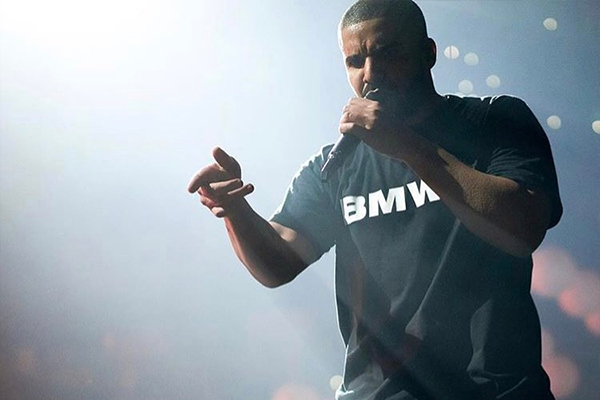
Photo source: Instagram
Aspire Music Group has sued Cash Money Records over alleged missing profits and copyright royalties from Drake‘s first six solo albums, according to court documents reviewed by Billboard. The earnings could end up totaling in the tens of millions.
The suit cites Cash Money co-owners Bryan “Birdman” Williams and Ronald “Slim” Williams, and Young Money Entertainment, as defendants.
Billboard writes: “In the filing, Aspire claims that in 2008, it signed an exclusive recording agreement with Drake, then entered into an agreement in June 2009 with Cash Money Records that would allow Drake to record for the label in exchange for one-third of the net profits of his first six albums and one third of the copyrights of his master recordings for those same albums, as well as monthly accounting and payments.”
However, Aspire alleges that Cash Money never paid out any profits outside of “a few modest advances” and that Aspire was never registered with a one-third ownership stake on any recordings.
The court documents specify the albums as 2009’s So Far Gone, 2010’s Thank Me Later, 2011’s Take Care, 2013’s Nothing Was the Same, 2015’s If You’re Reading This It’s Too Late, and 2016’s Views.
The court documents also reveal Cash Money’s alleged fraudulent accounting.
According to Billboard, “Cash Money sent copies of its payments from distributor Universal and included deductions for recording, marketing and production costs, as well as artist royalties and advances, that had already been deducted from Universal’s payments — effectively making them double deductions. The result was accounting that showed no payments due to Aspire.”
Aspire is not suing for a specific amount of money. Instead, the company is asking the court to supervise an audit of Cash Money’s books to determine the amount due.
Related: Ed Sheeran Sued For Allegedly Copying Marvin Gaye’s ‘Let’s Get It On’
Popular
-
May 23, 2023
The Best Remixes for Wedding DJs 2023

Wedding season has arrived! DJcity’s Remix Director Sir Marcus has put together a list of wedding-friendly tracks guaranteed to freshen up your DJ sets and...
-
December 22, 2023
Our Biggest Sale of the Year: Join DJcity for $1 🚨

We just launched our biggest sale of the year! Get 90% off a DJcity membership and join for just $1 (regular price $10) for the first month when you check...
-
February 15, 2022
New DJcity Pricing Plans Now Available

Here at DJcity, customer satisfaction is crucial, and therefore we always take input and feedback from our customers and DJ community very seriously. Due t...
-
December 18, 2023
Top 30 Remixes, Bootlegs, and DJ Edits of 2023
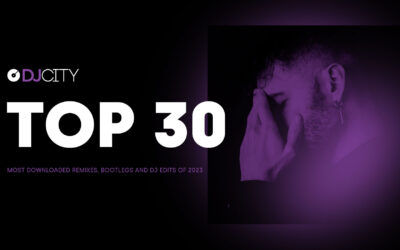
ATCG. Last Thursday, DJcity revealed its most downloaded tracks of 2023. Today, we dive deeper to uncover the most popular remixes, bootlegs, and edits of...
-
April 12, 2024
New and Notable Tracks: Apr. 12
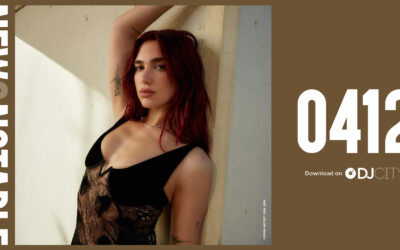
New tracks that DJs should know about.
-
June 4, 2020
50 Cent’s ‘In Da Club’ Remixed by Mr. M!X: DJcity Exclusive

Mr. M!X. (Source:Instagram) Dutch DJ/producer MR. M!X has delivered a remix of 50 Cent's birthday anthem "In Da Club." The moombahton-inspired flip is avai...
-
July 6, 2022
Afrobeats and Dance added as Main Genres on DJcity

At DJcity, we are always working to make sure that the way our record pool functions reflects the needs of our users. Therefore in our latest update, we sw...
-
August 10, 2018
Safety First! Remixes Benny Benassi’s ‘Satisfaction’: DJcity Exclusive

Benny Benassi performs at Cavo Paradiso Club in Mykonos, Greece on July 1. (Credit: Johnny Panopoulos) UK DJ/producer Safety First! has remixed Benny Benas...
-
June 29, 2015
Skrillex and Diplo Drop ‘Where Are U Now’ Video Feat. Justin Bieber
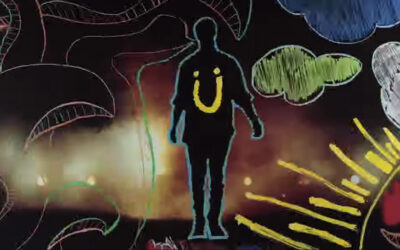
Some fans were skeptical when they discovered that Skrillex and Diplo's debut Jack U album includes a song with Justin Bieber. "Where Are U Now" has...
-
October 21, 2013
Lady Gaga ft. R. Kelly – Do What U Want

Lady Gaga has released a new track featuring R. Kelly from her upcoming album, Artpop. The song features production from DJ Snake and comes less than a wee...

